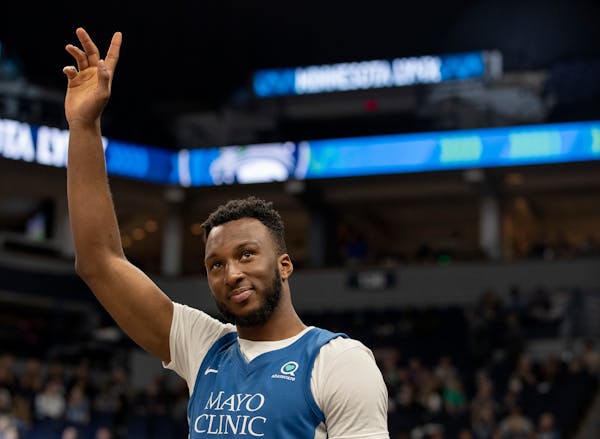 See
more of the story
See
more of the story
This weekend, five days after a cop knelt on George Floyd's neck in bright daylight on a Minneapolis street, NFL Commissioner Roger Goodell issued a statement.
Either he took five days to toss a meaningless word salad, or he belatedly realized that he was among the last sports leaders to have failed to acknowledge the killing, and on Saturday quickly tossed a meaningless word salad.
I could reprint Goodell's statement here, but it might be easier for you to just Google "Generic press release template."
Ignore Goodell. He facilitated the blackballing of Colin Kaepernick, who was peacefully protesting killings just like that of George Floyd, and he has failed to persuade NFL owners to hire a reasonable number of black coaches and general managers in a sport filled with high-achieving black men. He possesses the same credibility as a new Twitter user with zero followers and a Russian handle.
Instead, today, read the piece written by Joe Lockhart for CNN.com. Lockhart worked as an NFL executive. He also worked in the White House.
Lockhart's essay exposes all that Goodell and NFL owners have tried to obscure — that Kaepernick remained unsigned because NFL teams didn't want to anger portions of their fan base or bring unwanted media attention to their locker rooms.
Lockhart writes that he thought the NFL did good work in trying to encourage discussions about race and protest, and that Goodell at least had good intentions. "Though Kaepernick didn't get his job back, I thought we had done a righteous job, considering."
If that was the culmination of Lockhart's piece, he would have exposed himself as exactly the kind of self-congratulatory and cloistered NFL figure who has kept the league's worldview rooted firmly in the 1950s.
But he had more to say.
"I was wrong," he wrote. "I think the teams were wrong for not signing him. Watching what's going on in Minnesota, I understand how badly wrong we were."
Lockhart concludes the Vikings could do the world and the league a lot of good by signing Kaepernick.
He's right. Signing Kaepernick would signal that the Vikings care about social justice, and that the NFL acknowledges its wrongful blackballing of a talented player.
Signing Kaepernick would also make football sense.
He is 32, healthy and remains in remarkable shape. The Vikings' current backup is Sean Mannion, the kind of extra quarterback that nobody wants to see take the field.
Kaepernick would give the Vikings a chance to win if Kirk Cousins gets injured, and he's young enough that he might become the franchise's quarterback of the future.
The best aspect of signing Kaepernick would be that he could become a familiar presence in Minnesota and in national media.
Plenty of Minnesota sports figures have taken the same stance as Kaeper-nick. Lynx players wore shirts emblazoned with "Black Lives Matter" after the killing of Philando Castile and Alton Sterling.
Gophers women's basketball coach Lindsay Whalen is a vocal supporter of social justice and stood with her black Lynx teammates at that time. Lynx coach Cheryl Reeve champions equality for all.
Former Twins star Torii Hunter spoke last week about being profiled, and former NBA player Stephen Jackson spoke eloquently in Minneapolis on Friday about racism and police killing unarmed black men.
Timberwolves players have tried to raise awareness about racism and have openly mourned Floyd's killing. Wolves GM Gersson Rosas and coach Ryan Saunders have spoken in support of their black players.
None of these Minnesota sports figures have been treated locally the way Kaepernick was treated nationally, because we know them, and we listen to them. We know they are good people. Even racists have trouble getting mad at Maya Moore or Karl-Anthony Towns.
They have not been reduced to symbols and talking points. In Minnesota, Kaepernick could become a powerful and familiar force for good. He might win a few football games, too.
Jim Souhan's podcast can be heard at TalkNorth.com. On Twitter: @SouhanStrib. • jsouhan@startribune.com


